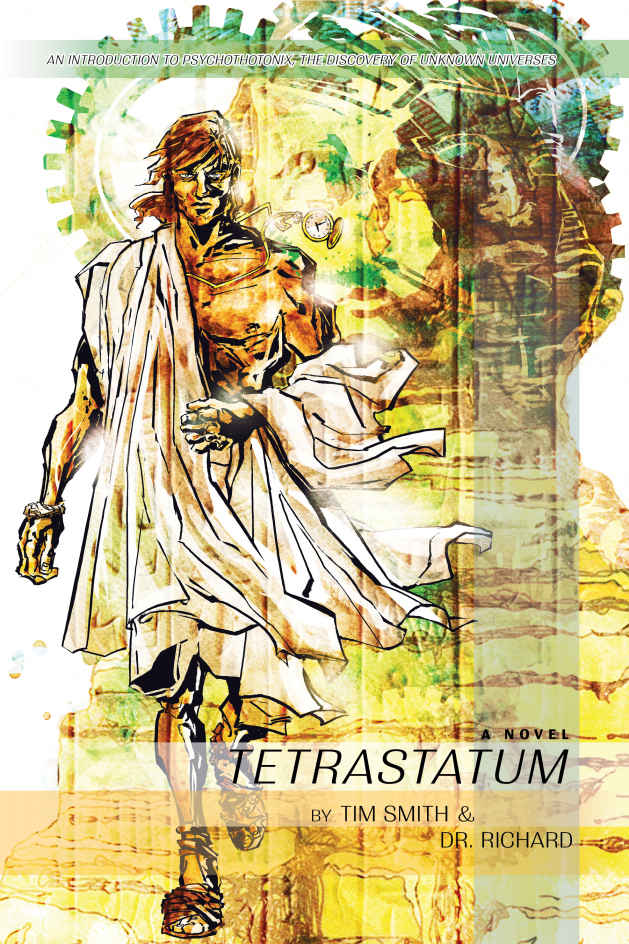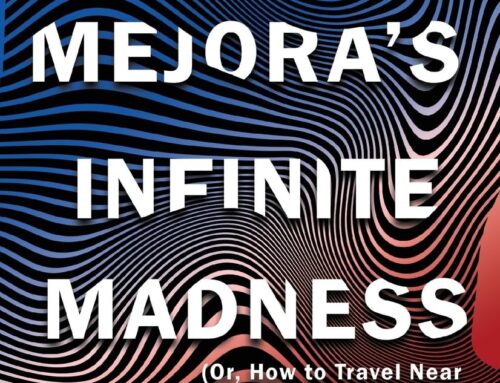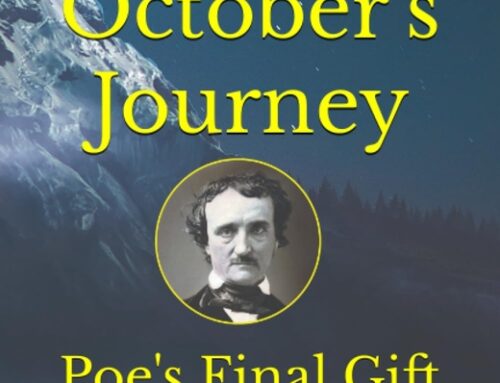 For those who think sci-fi is little more than futuristic space operas and allegorical cautionary tales, Terastatum, the new novel from Tim Smith and Dr. Richard, will certainly broaden your horizons. Inspired by the likes of other famous Richards – Feynman and Dawkins – this book is a wild and wise journey through time, space and some of the most complex fields of modern science.
For those who think sci-fi is little more than futuristic space operas and allegorical cautionary tales, Terastatum, the new novel from Tim Smith and Dr. Richard, will certainly broaden your horizons. Inspired by the likes of other famous Richards – Feynman and Dawkins – this book is a wild and wise journey through time, space and some of the most complex fields of modern science.
The novel is founded on a truly boggling premise that there is another universe, just as massive and incalculable as the physical one, consisting of non-matter, known as a thotonic universe. Not only can this space-time-eluding universe be accessed, but it can also allow for something akin to time travel, wherein you are able to move throughout thought and memory and dreams. The authors of the book – Tim Smith and Dr. Richard – sit firmly at the center of this story, and their unlikely partnership makes for some madcap adventures as the former decides to take a jaunt through the fabric of time itself.
Having lost his daughter and wife a few years earlier, Tim Smith is all too willing to push science to the edge of the possible if it means reuniting with his loved ones. However, traveling to Atlantis and ancient Egypt aren’t bad side trips, and readers are carried along for the unpredictable, and at times harrowing ride. Halfway between a philosophical manifesto and a tangent-filled lecture series ranging from quantum physics and the author’s psychothotonix principles to metaphysics and grief, Tetrastatum is like nothing you have ever read before.
The characters at the heart of the story do seem slightly irrational, but unreliable narrators have long sat at the heart of great books, and given how flexible the boundary of reality becomes in this story, more sane protagonists might seem out of place. The inclusion of such technical and academic detail regarding many of the plot elements proves the author’s authority in such fields, although most of the subject matter is so far above the common reader’s head that it’s hard to nod along in concurrence with many sections of the prose. Despite the esoteric and heady diatribes, some of which can drag on a bit too long, the story does move along at a good clip, even tackling more traditional ideas of love and loss and the illusion of time.
On a more technical note, the shifts between focal points can be jarring, and since there is so much bending of time and space, it isn’t difficult to get lost in the mix. The author tows a delicate line of brilliant madness, but can occasionally come across as nearly unintelligible, but the emphasis is really on the novel’s unique brilliance.
All told, this is an impressive work of science fiction, introducing concepts that may become mainstream in the coming decades, weaving them into a compelling story with riveting characters, and challenging the status quo of what people understand about reality. While some passages may be too verbose or complex for a layman to fully decipher, the bulk of this novel is thrilling and accessible, especially for fans of heady visionary fiction.
Available At


















Leave A Comment